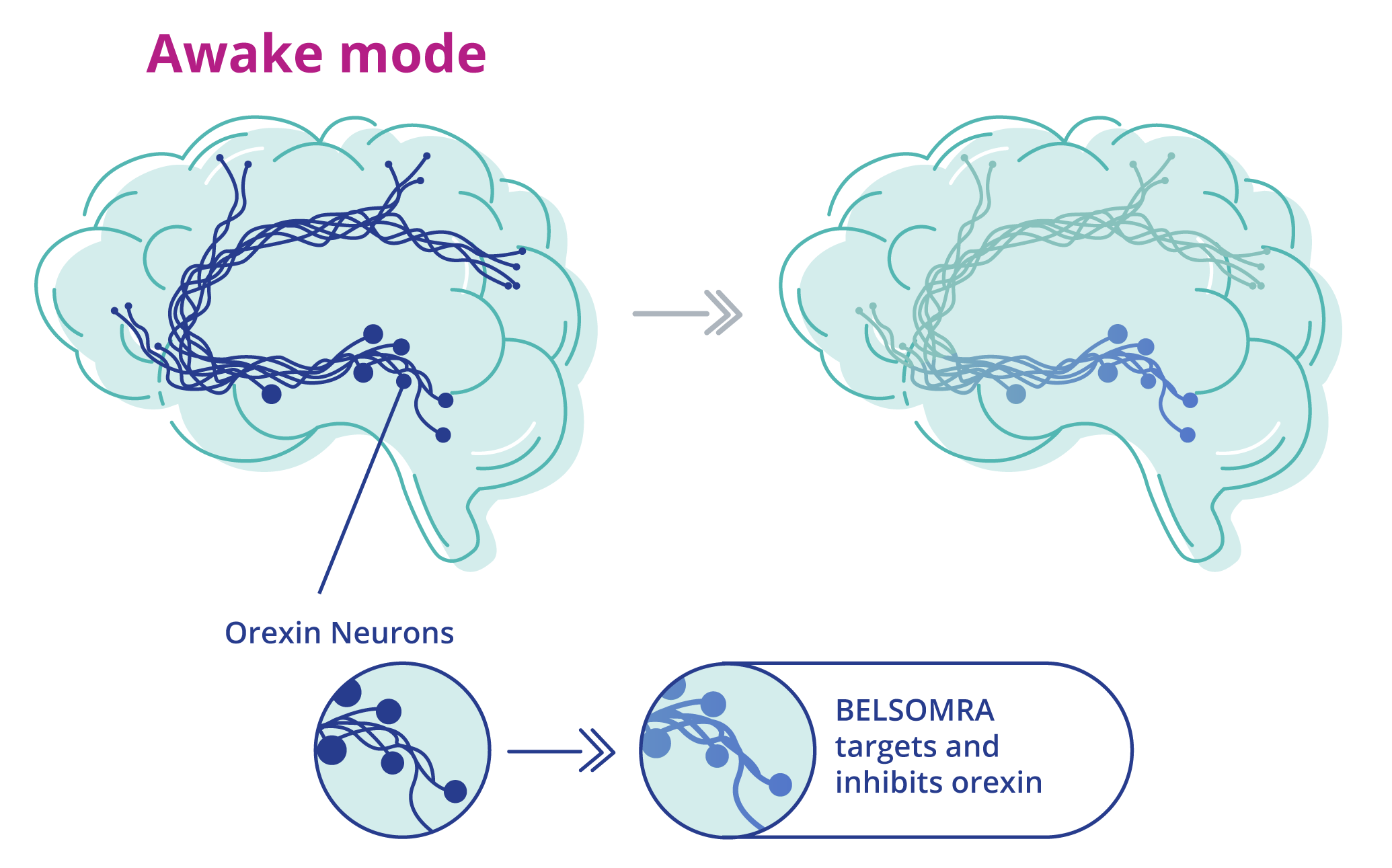BELSOMRA clinical study results
- BELSOMRA helped people fall asleep faster and stay asleep longer compared to those taking a placebo.
- There was no evidence of physical dependence after prolonged use of BELSOMRA. There were no reported withdrawal symptoms after discontinuation.
BELSOMRA is a federally controlled substance because it can be abused or cause dependence. Keep BELSOMRA in a safe place to prevent misuse and abuse. Selling or giving away BELSOMRA may harm others and is against the law. Tell your doctor if you have ever abused or have been dependent on alcohol, prescription medicines, or street drugs.
In an insomnia study in adults with mild to moderate Alzheimer’s disease, people achieved longer total sleep time when taking BELSOMRA compared to those taking placebo.
BELSOMRA is thought to inhibit the action of orexin, one of the wake neurotransmitters that play a role in the wake-sleep cycle.
BELSOMRA is a prescription medicine that is thought to target and inhibit the action of orexin.
Orexin is a neurotransmitter that plays a role in the wake-sleep cycle. BELSOMRA is thought to work by blocking orexin from sending wake signals to other parts of the brain, which could be keeping you from sleeping.

Learn about special offers for BELSOMRA
Savings coupon for BELSOMRA
Eligible, privately insured patients may save on their out-of-pocket costs for their prescription for BELSOMRA. Not valid for patients who are uninsured or patients with Medicare or other Government Program insurance.
Not all patients are eligible. Certain restrictions apply. Please see Terms and Conditions.
Free Trial Offer for BELSOMRA
If you and your doctor decide that BELSOMRA is right for you, you may be eligible to receive a free trial offer.
Not all patients are eligible. Certain restrictions apply. Please see Terms and Conditions.
Explore related topics

What is insomnia?

Possible side effects


